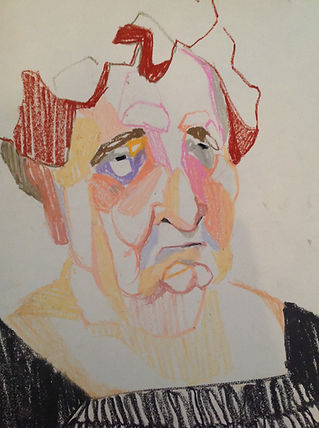top of page
Pelican is a large water bird that builds its nest in a hight close to earth, usually near water. That's why its babies are easy preys for other animals.
Mythology wants the pelican mother trying to save her babies (when she finds them traumatised on the nest) by feeding them her own blood or skin.
It's the mothers try to save her babies or even 'bring them back to life'.
It is a myth that was used by Christian religion as a symbol of a mother's sacrifice to save her babies when in pain/trauma.
Last year, many days of the year, I used to see pelicans crossing my way (or the opposite) while driving to work to region of Serres Greece. I also used to see refugees trying to cross the road, trying to get to a safer place, to a peaceful place. While seeing them in a condition that wasn't human at all, holding their babies, walking many miles, I thought how close they were to the sacrifice pelican mothers do.
This thought made me use barbed wire to create a nest. It's like the wires that covers refugees camps and are seen as the only home these people have till they actually find peace in a safer place.
This installation won the Gold Award in installation category in 'Without Borders' competition organised by WUD (India)/fall 2020.

Pelican Blood
paper, pencil, barbed wire, light
2020

Human map.
Human map was a project (2013) that tried to depict how the city of Thessaloniki is being formed through its people . How their moves, taste, wrinkles were formed depending on their experience and their social status and how that was expressed in numbers. It was a painting installation formed by 231 portraits of people of Thessaloniki.
Human map
pancil, oil and dry pastel on paper
2013


Pelican Blood



bottom of page
